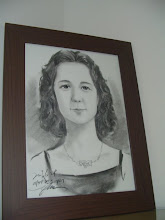zouhair maalej
"...anger in tunisian arabic (TA) shows many more dimensions of embodiemnt than physiological embodiment. Anger in TA comes as physiological embodient, culturally specific embodiment, and culturally tainted embodiment."
"when the conceptualization of an emotion does not come as a rsult of a physical cause-effect relation, the conceptualization and the emotion are not physically close, which gives room for other kinds of embodiemnt."
"American make use of a folk model for the expression of anger governed by the container metaphor."
Kovecses (1995) explained that the model describes 3 submetaphors: "THE BODY IS A CONTAINER FOR THE EMOTIONS"..."ANGER IS HEAT"...and "EMOTIONS ARE FLUIDS"..."
"Lakoff (1987) argued that the scenario view of anger in American English must have "made sense to hundreds of millions of English speakers over a period of roughly a thousand years" (p. 407), strongly suggesting a universal status for physiology in emotion concepts. Furthermore, Lakoff and Kovecses (1987) claimed that "if we look at the metaphors and metonymics for anger in the lanaguges of the world, we will not find any that contradict the physiological results that they [the Ekman group] found" (p.220 that amounts to a claim for the universality of an anger scenario based on the nervous system and physiology."
"Cognitive linguistics is one of the very few current theories of linguistics to have given a place to the body in the mind, thought, meaning, and reason. This conceptualization of embodiment is inherent in the fact that we have a body."
"However, TA (together with other languages), for instance, includes emotion expressions where the basic-level category capitalized on is a body part that is not actually involved in any physiological change to the body. This kind of embodiment will be labeled culturally specific embodiment...the basic-level category is culture-specific, thus tainting the emotion with a cultural flavor."
TA: "He made my blood half-boil like a half cooked egg."
English: "He made my blood simmer."
TA: He lifted blood up to my head."
Eng: "I was flushed with anger."
TA: "He made my blood steam."
Eng: "I was fuming."
TA: "He half-boiled my brain to me like a half cooked egg."
"the heart is a container for anger."
"My heart is sloshing [with anger[".
"My heart was full of him."
TA: "X is a well without a bottom."
"X is a secretive and uncomplaining person."
"because the allowable amount of anger in the heart is definately smaller than the amount that the body can accomodate. As noted earlier in connection with anger and the heart, people who are said to have big hearts are likely to take in more anger than those who have a small one."
TA: "He swelled my nerves for me." "He made me have nerves." "My nerves escaped form me."
"He left me about to explode." "He exploded my bile to me."
"I found him dancing with two scarves." = "He went into a trance form anger." Rehab said it actually connotes great joy.
"He inflated my testicles." John said it is exactly the same as French.
Maalej ties the broken bones metaphor to cultural experience: the father buys a sheep, children play with it for a few days or even weeks, then it is slaughtered for a religious meal. This causes physical traums for the Tunisian children. Rehab and Asher disagreed that this causes trauma.
Subscribe to:
Post Comments (Atom)

No comments:
Post a Comment